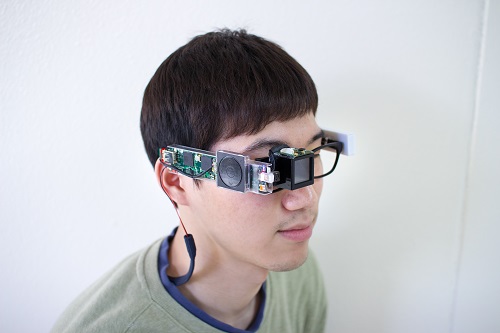From March 24 to April 11, Korea Industrial, Technical, & Academic Information Service Co., better known as KITIS, hosted an online event named “IEL Searching Quiz Contest.” The KAIST Herald met with the event supervisor, William Song, to hear his intentions on the quiz contest and the uses of IEL and IEEE programs.

Could you introduce yourself and give us a little background knowledge on the quiz contest?
My name is William Song and I am the chief-supervisor for the IEL Quiz Contest, which is hosted by KITIS. The IEL in the contest’s name in an acronym for IEEE/IET Electronic Library; it is an engineering field-specific professional database provided by the Institute of Electrical and Electronics Engineers (IEEE). The event itself was intended to introduce IEEE to undergraduates and by holding a contest requiring its use, we thought it would help motivate students to learn how to use IEL more effectively and freely in their education.
Is there a reason you wished to push forward IEEE specifically?
IEL is an essential primary source in many institutes all around the world, and in Korea, it is in heavy use by the majority of research institutes and companies, such as Samsung Electronics and Hyundai Motors, as well as over 80 colleges. Undergraduates, who will surely be using it as well in their professions or master’s and doctorate programs, would do better in familiarizing themselves with IEL earlier on. Moreover, using IEL and the auxiliary IEEE English for Engineering course could aid greatly in attaining specialized knowledge and higher English proficiency, which are increasingly important criteria in the professional world, not limited to Korea.
For better understanding, could you further elaborate on the differences of IEL and IEEE English for Engineering with other library systems and English programs?
As some may already know from the quiz invitation emails, IEL has accumulated papers for over a hundred years and is undoubtedly the best source concerning citation count in both the academia and industries. IEEE English for Engineering is a professional online program for specialized use of English that was created in affiliation with Cambridge University. It is also known for its IELTS program, which focuses on the language use in engineering practices; because the reference papers are those from IEL, the practicality of the program’s language is quite reliable. The program has four different sections - listening, reading, writing, and speaking - and is expected to let students put this knowledge to immediate use. Also, the program being online allows the tutee to learn conveniently and time efficiently during any time of the day.
Is there a reason why the participation requirement is being an undergraduate student in the field of engineering or natural sciences?
Although IEEE is an association of electrical and electronics engineers, the database has materials on various different engineering fields as well, such as mechanical, nuclear, bio, and automobile engineering. So we included all of engineering and natural science students. However, the sources are mostly of irrelevance to other field, hence the qualification.
How would undergraduates utilize IEL?
The database is updated monthly with relevant articles, and the collective totals to roughly upwards of 50,000 pages. By using the source for not only areas related to pertinent academics but also those of personal interest, such as modern smartphones and wearable personal computers (better known as PCs), students could attain deeper knowledge of the progresses in their fields and the necessary extra boost in their language studies.
Are there any words you would like to share before closing?
Language, especially English, is inseparable from engineering. It is the fundamental medium for referencing and understanding the works of others in the field, and allows the sharing and receiving recognition for your accomplishments as well. We wish that Korean students can benefit from the IEEE English for Engineering program and gain a high degree of professionalism via IEL database, thence truly qualify to enter and prosper in the global stages.
Jisoo Kim
kimjisoo.327@gmail.com

